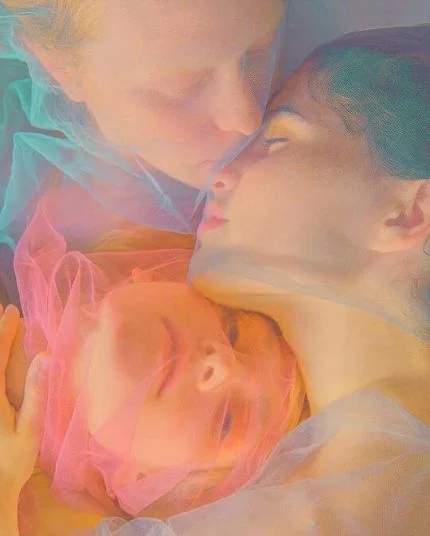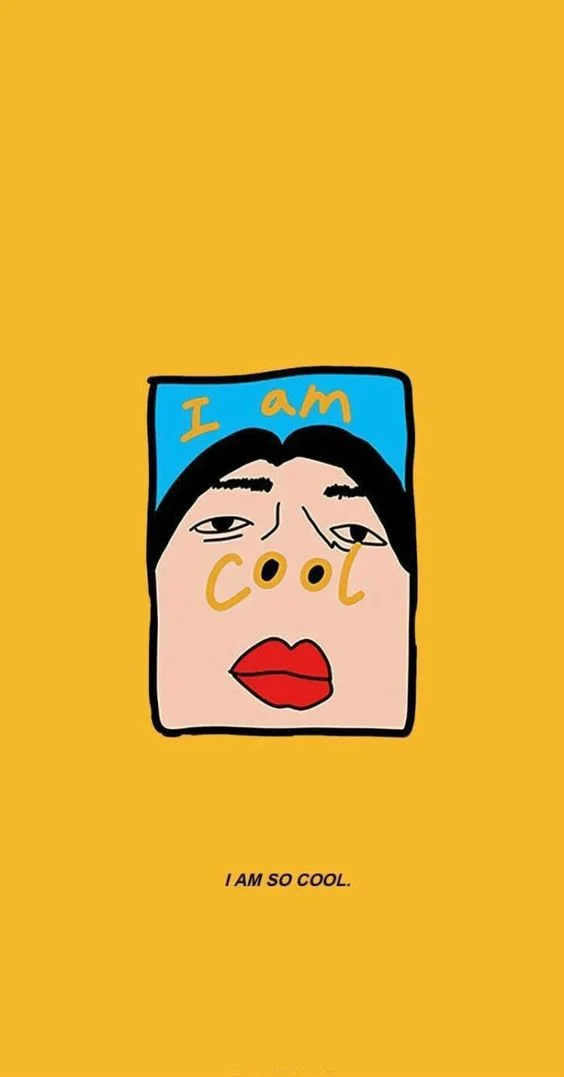Worth of Words: Who Can Claim (and Reclaim) Queer Language?
About the Series: Worth of Words
It’s been often said that words have power; they are the vessels of how we perceive and construct reality and our everyday lives. Yet, this power becomes nuanced when looking at just how those words come across—how they’re spoken, why they’re written, when and where they’re read. Moreover, they vary across different cultures, geographies, and times, meaning there’s a lot more to unpack than what our own lived experiences can say. Worth of Words was created to do just that—to tell the stories of our words, our accents, our voices, and our various languages, ranging from the variations of Blackness in speech and code-switching to how language impacts queer identities. Our camp counselors shared their stories, both visually and audibly, so you can read and listen to their experiences on the power, and possible harm, of words.
Disclaimer: This article includes discussion of several queer slurs.
As someone who’s openly and vocally queer, straight people often try to connect with me through queer culture. Some of these thoughts are interesting to hear and some of these questions are understandable, but many of these interactions feel lazy or, quite frankly, Google-able. I remember the time my straight coworker asked me what “serving fish” meant; fair, but he could’ve simply checked urban dictionary. I remember when the straight girl in my German cinema class heard me crack a joke and asked me if I “got that line from James Charles”; I was annoyed and promptly tweeted about the incident, writing “no honey, I’m just gay!”
In many ways, it’s comforting that queer language is no longer the secret it once had to be — read up on Polari if you want to learn about the history and necessity of a queer anti-language — but this relatively new linguistic visibility doesn’t always feel productive or genuine. Queer slang is more than mainstream now (see: straight girls parading to pride in their “Slay Queen” crop tops), but oftentimes it feels more like apporpriation than appreciation when queer language is used by non-queer people.
While we’re having this conversation, I think its worth outlining how queer language often appropriates Black language. White gays often use phrases (like yas queen, serving, slay, sis, etc) that originated through AAVE.
This isn’t surprising, as many aspects of queer culture, linguistic and non-linguisitic, are drawn from non-white communities. Though there has been some violent erasure of how queerness is rooted in the culture of Black, trans, and femme communities; modern collectives like PapiJuice and Bubble T create spaces that include and celebrate communities of non-white-male-centric queerness. Quite a few conscious queer party spaces also include disclaimers for their events; House of Yes, which throws recurring House of Vogue events, puts this disclaimer in each description:
“Balls are an intentional space for queer and trans people of color. You may know about Vogue from Madonna, but it has roots in the historically marginalised urban black and Latino gay and trans communities. If you are not from this community - you are a spectator or ally - please be mindful of the space you take up. Do not push to the front to take photos or videos, do not stand in the way of dancers or house members. If you would like to participate, make sure you understand completely what each category means before entering. Any racist, classist, sexist, homophobic, and/or transphobic behavior will not be tolerated. If your behavior is found to be disruptive, you will be asked to leave.
As an ally or spectator, the best way you can show your support and appreciation for ball culture is by buying drinks at the bar. By patronizing the bar, you make it possible for our venue to continue providing space to cultures like this.”
Similar to these parties, our language should be conscious of its own roots. There isn’t (and will probably never be) a clear line that determines who can use certain queer terms. There doesn’t need to be a literal line, but it’s important to remember where terms, like this AAVE slang, originated, and who should feel comfortable using them. There are plenty of reasons to celebrate how language can expand and connect people, and there are many ways to be thoughtful about your language through the lens of who you are, whom you represent, and with whom you’re communicating. If you’re not Black, the Black girl you just met in the bathroom may not feel comfortable with you calling her sis. If you’re not queer, the gay man you just met on the dance floor may not want to be called a queen. And, while we’re at it, if you’re a straight white woman like Taylor Swift, it may not be appropriate to suggest that the people who are spewing hate speech against the queer community are merely “throwing shade.”
This brings up another more distinct question for me: who exactly can claim, or reclaim, certain words?
The word f*ggot is one that’s always a hot topic of debate. It can still objectively be categorized as a slur, but there’s a lot of gray area when it comes to the way it has been reclaimed by the gay community.
When one of Doja Cat’s fans resurfaced a tweet where she called Tyler, the Creator and Earl Sweatshirt “f*ggots,” she posted this legendarily problematic tweet, which was promptly taken down. In the wake of that incident, quite a few gay men on twitter made jokes, saying “Doja Cat can call me a f*ggot;” a joke that many of my own gay friends have also used for other problematic queer-adjactent artists, such as Azealia Banks.
There are also many gay men who openly use the word fagg*t in jest, or as a term of endearment. Back in 2017, a vine of Ariana Grande saying “Vegas let me hear you make some noise” was intentionally miscaptioned reposted on twitter many times as “F*ggots let me hear you make some noise!!!” and became a running joke for many queer people, both on and offline.
But there’s a huge difference between a queer man using this word and any other person using it, including others in the LGBTQ+ community. I’ve had many conversations with the queer men in my life about my right (or lackthereof), as a gay woman, to use this word. As you would assume, each person has their own feelings about the word f*ggot that are deeply intertwined with their personal histories with the word. Some of the people I’ve discussed this with believe that it’s also my word to use as a queer person, while others feel uncomfortable hearing it coming out of the mouth of anyone who isn’t a queer man.
I don’t believe that it would ever be appropriate for me to decide or proclaim my right to this word. I’m not uncomfortable with the word being reclaimed, but I also don’t believe it’s my word to claim. This is probably because, in the most direct parallel, dyke is my word to claim.
Though it can still be used as a slur akin to f*ggot, “dyke” has almost always been used with endearment in my life, and I’m incredibly comfortable with the way that I’ve personally reclaimed it. From the annual Dyke March to accounts like godimsuchadyke, this word represents a community for me, and I’m comfortable calling myself and my friends dykes.
When my sister describes herself as a dyke, or introduces me to her older dyke friends, it connects me to a community that straight society has actively tried to destroy. Meeting 70-year-old dykes is something that reminds me that my people have a history; one that is still living and growing despite efforts to tear it apart. Yes, these women could also be called older lesbians, but there’s a certain power to the way that dykes have reclaimed this word that makes me feel powerful using it; I’m carrying on a legacy.
There’s clearly a big difference between a straight person using a term like “gagged” or saying the word “dyke.” As comfortable as I am with the word, I don’t want to hear a straight person using it to describe people who don’t identify with the term, even if it’s meant to be endearing. I can call myself a dyke, and my other queer friends can call me a dyke, but that’s an incredible personal preference that not all dykes would agree with. Language is always personal, nuanced, and charged, so as a safe bet, if you don’t know someone you probably shouldn’t feel entitled to use an intimate term like that for a stranger.
This doesn’t mean that non-queer people shouldn’t celebrate and appreciate the expansion and history that queer language carries, it just means they should think about how they weild language that isn’t theirs. Having language that represents your community is essential for creating mutual discourse and growth, and reclaiming words that have been used against you can carry a unique sense of liberation, but that reclamation is a decision that each person has to make for themselves.
About the Author
Julia Carmel (she/her) is a recent graduate from Binghamton University. As a journalism student, she became fascinated with how art and technology alter our social landscape, and her work centers around human connections that can be found at the intersection of identity and culture. She’s currently a Newsroom Assistant for The New York Times, but you can usually find her reading in public parks, eating Takis, and dancing at free concerts. You can check out her other work on her website.


